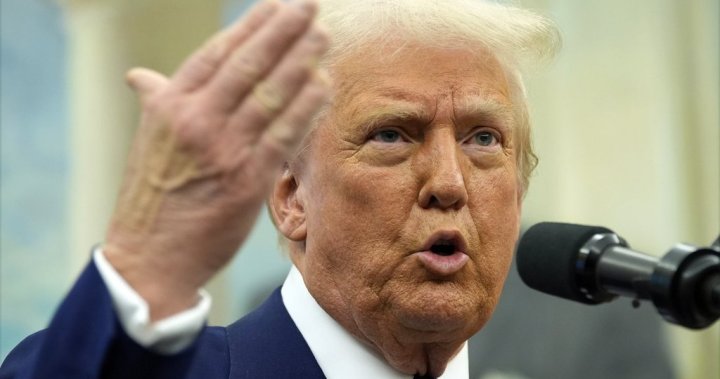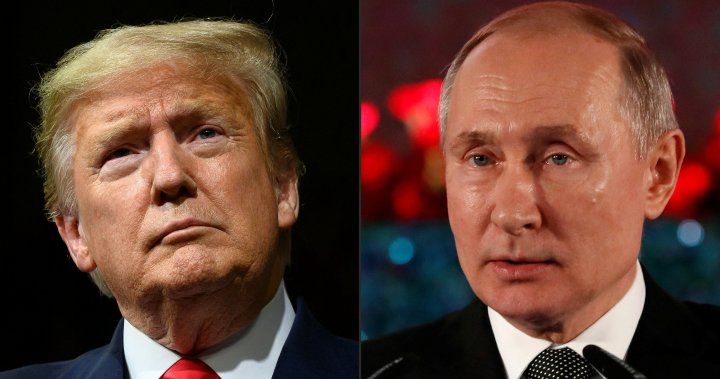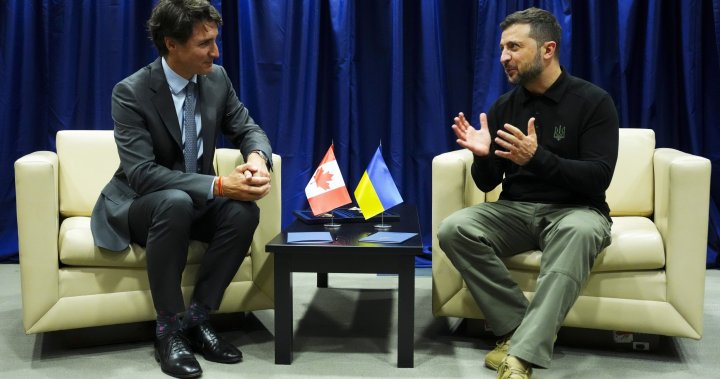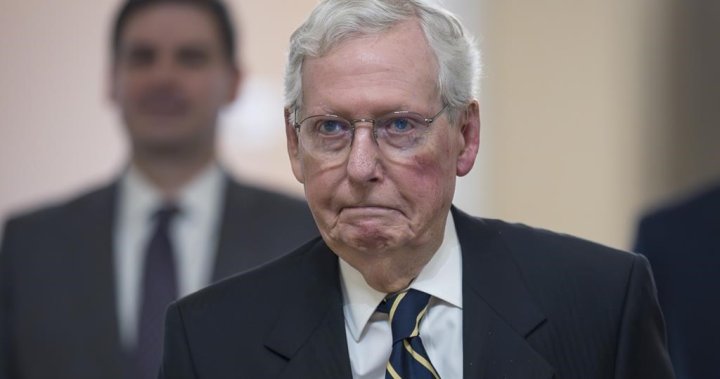Trump orders tariffs on digital service tax countries, including Canada – National

U.S. President Donald Trump has signed a memorandum to impose tariffs on countries that levy digital service taxes on U.S. technology companies, a White House official said.
Another official, providing details of the order, said Trump was directing his administration to consider responsive actions like tariffs “to combat the digital service taxes (DSTs), fines, practices, and policies that foreign governments levy on American companies.”
“President Trump will not allow foreign governments to appropriate America’s tax base for their own benefit,” the official said.
The memo directs the U.S. Trade Representative’s office to renew digital service taxes investigations that were initiated during Trump’s first term, and investigate any additional countries that use a digital tax “to discriminate against U.S. companies,” the official said.
Trump said last week that he would impose tariffs on Canada and France over their digital service taxes, and a White House fact sheet released at the time said that “only America should be allowed to tax American firms.”

It complained that Canada and France used the taxes to each collect over $500 million per year from U.S. companies.

Get breaking National news
For news impacting Canada and around the world, sign up for breaking news alerts delivered directly to you when they happen.
“Overall, these non-reciprocal taxes cost America’s firms over $2 billion per year. Reciprocal tariffs will bring back fairness and prosperity to the distorted international trade system and stop Americans from being taken advantage of,” said the fact sheet. It gave no further details.
The digital service taxes aimed at U.S. tech giants including Alphabet’s Google, Meta’s Facebook, Apple and Amazon have been a source of trade disputes for years.
Britain, France, Italy, Spain, Turkey, India, Austria and Canada have imposed the taxes, levied on revenues earned from digital services sold within their borders.
The U.S. Trade Representative’s office during Trump’s first term found them to discriminate against U.S. companies and readied retaliatory tariffs.
President Joe Biden’s trade chief, Katherine Tai, in 2021 followed up on those probes and announced 25% tariffs on over $2 billion worth of imports from six countries, but immediately suspended them to allow negotiations on a global tax deal to continue.
Those negotiations led to a 15% global corporate minimum tax that the U.S. Congress never ratified. Talks on a second component, meant to create an alternative to the digital taxes, have largely ground to a halt with no agreement.

Trump on his first day in office effectively pulled the U.S. out of the global tax arrangement with nearly 140 countries, declaring that the 15% global minimum tax has “no force or effect in the United States” and ordering the U.S. Treasury to prepare options for “protective measures.”
A new Trump order could allow USTR’s retaliatory duties to be reactivated. They were designed to offset the amount of digital service taxes collected.
In 2021 USTR said it would impose 25% tariffs on about $887 million worth of goods from Britain, including clothing, footwear and cosmetics, and on about $386 million worth of goods from Italy, including clothing, handbags and optical lenses.
USTR said at the time it would impose tariffs on goods worth $323 million from Spain, $310 million from Turkey, $118 million from India and $65 million from Austria. USTR separately suspended tariffs on $1.3 billion worth of French cosmetics, handbags and other goods.








